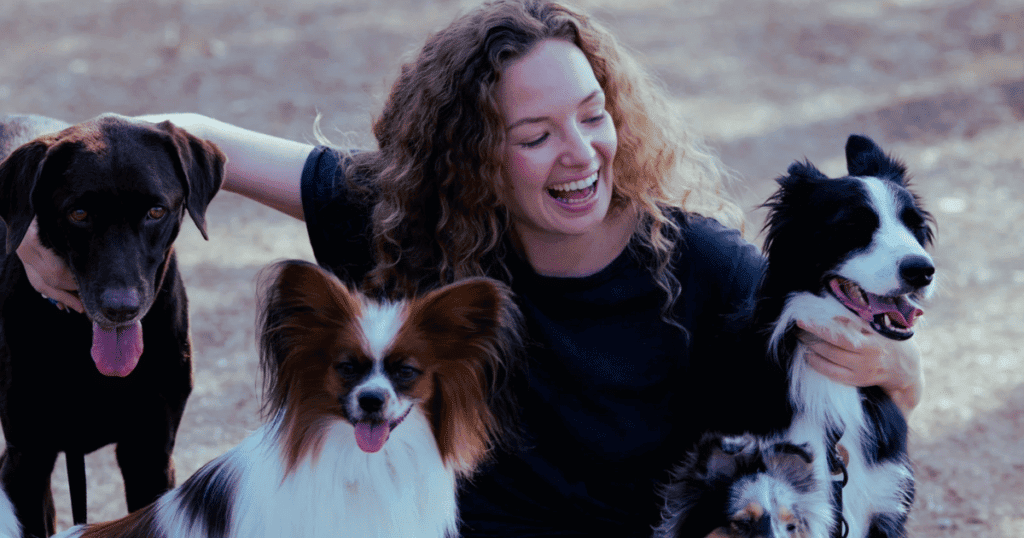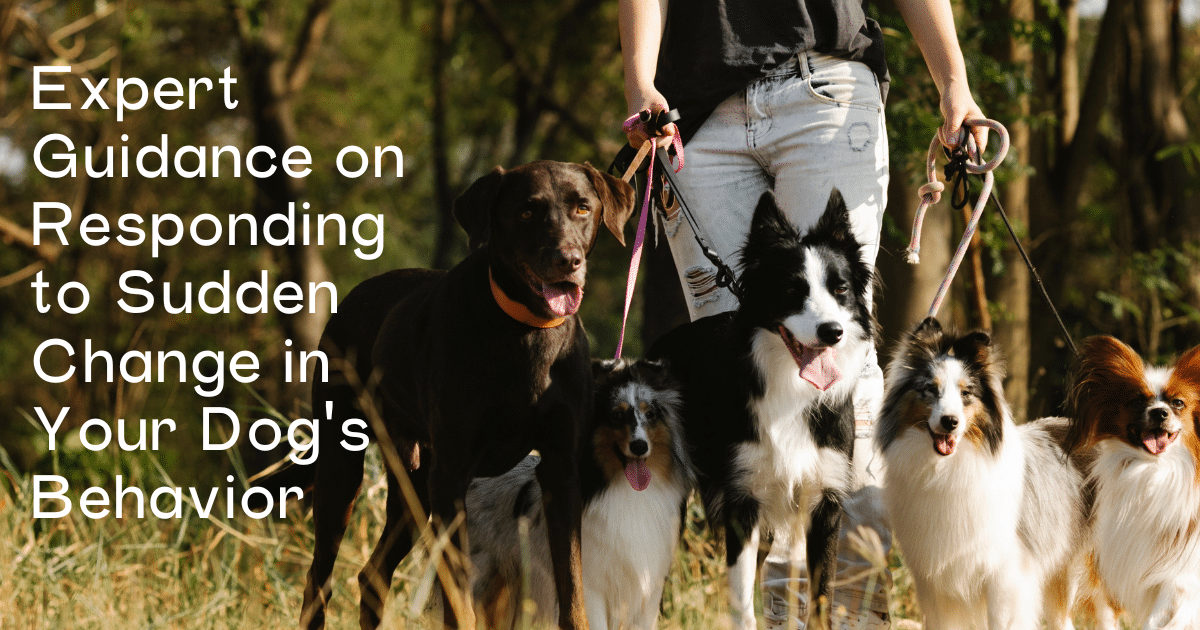Although our furry friends provide us with endless happiness and company, occasionally they may display behaviors that worry or perplex us. Although a sudden change in your dog’s behavior can be concerning, you must react to it with tolerance, compassion, and above all professional advice. This thorough guide will examine the typical causes of unexpected behavioral changes in dogs and offer practical suggestions for how to handle them.
- Understanding the Norm: Before we can identify what’s abnormal, we must first understand what’s normal. Typical dog behaviors include eating regularly, being active, and showing consistent levels of interaction with their environment and family.
- Importance of Observing Changes: Noticing sudden change in your dog’s behavior is crucial. These changes can be subtle but may indicate underlying issues that need attention.
- Purpose of the Article: This article will equip you with the necessary tools to identify, understand, and effectively respond to sudden change in your dog’s behavior.
Identify Sudden Change in your Dog’s Behavior
- Physical Symptoms: Keep an eye out for signs such as lethargy, loss of appetite, or unexplained aggression. These could be early warnings of health issues or distress.
- Emotional Indicators: Changes in how your dog interacts with you or others, displays of excessive fear, or reluctance to engage in familiar activities can all point to emotional disturbances.
- Behavioral Patterns: It’s important to distinguish between occasional misbehavior and consistent changes in behavior. An always calm dog suddenly becoming anxious or destructive is a red flag.
Common Triggers for Behavioral Changes
- Health-Related Issues: Conditions like thyroid dysfunction or neurological disorders can profoundly affect your dog’s demeanor.
- Environmental Factors: Moving to a new home, changes in the family dynamics, or even alterations in daily routines can disorient your dog.
- Psychological Triggers: Past trauma, separation anxiety, or significant disruptions like the loss of a family member (including pets) can trigger behavioral changes.
- Maintain a Calm Environment: Dogs are highly attuned to their surroundings, and they can pick up on your emotions. During this time, it’s essential to remain calm and composed to help reassure your dog and alleviate any anxiety or stress they may be experiencing.

Properly Responding to the Changes
- Consulting Professionals: If changes in behavior persist, consulting a veterinarian or a behaviorist is crucial to ruling out health issues or obtaining behavioral advice.
- At-Home Observations: Documenting when the behavior occurs can help identify triggers and discuss them knowledgeably with professionals.
- Initial Response Strategies: Maintain a calm demeanor. Avoid punishing your dog for stress-induced behavior, as this can exacerbate the issue.
- Be Patient and Consistent: Changing behavior takes time and patience, so be consistent in your approach and give your dog the support and guidance they need to adjust. Celebrate small victories along the way and remain committed to helping your dog thrive.
Long-Term Management and Care
- Training and Rehabilitation: In some cases, professional training or behavior modification programs may be necessary to correct or manage the behavior.
- Support and Resources: Utilize support groups, both online and offline, and resources like books and training guides. They can offer strategies and comfort from shared experiences.
- Ongoing Health Management: Regular veterinary check-ups and maintaining a healthy lifestyle play critical roles in your dog’s overall behavior and well-being.
Engaging with Experts
- Choosing the Right Professional: Look for professionals with specific experience in dealing with behavioral issues, and check credentials and reviews.
- What to Expect During Consultations: Be prepared to provide a comprehensive history and context for the behavioral changes. This will help the expert diagnose and suggest the best approach.
- Continuous Improvement and Monitoring: Work closely with professionals to develop a tailored plan for your dog, which might include follow-up visits and adjustments in strategies.

Summary
Responding to a sudden change in your dog’s behavior can be challenging, but with the right approach and expert guidance, you can help your furry friend navigate this difficult time successfully. By understanding the potential causes, responding effectively, and seeking professional assistance when needed, you can support your dog’s well-being and strengthen your bond for years to come. Remember, patience, empathy, and consistency are key as you work together to overcome this hurdle and ensure a happy, healthy life for your beloved companion.
- Recap of Key Points: We’ve discussed how to identify changes in your dog’s behavior, possible triggers, and appropriate responses, both immediate and long-term.
- Final Thoughts: Regular observation and quick response are key to managing sudden behavioral changes. With patience and the right strategies, you can ensure your dog remains healthy and happy.
FAQs
- What is considered a ‘sudden change’ in a dog’s behavior?
Sudden changes are those that are drastically different from your dog’s normal behavior patterns and occur unexpectedly. - How can I tell if my dog’s behavior change is due to a physical illness?
Look for physical symptoms like vomiting, limping, or changes in appetite along with behavioral changes. Consulting a vet is always recommended. - What are some immediate steps I can take at home before seeing a professional?
Ensure your dog’s environment is safe and comfortable. Avoid potential stressors and maintain a routine as much as possible. - How long should I monitor my dog’s behavior before getting professional help?
If the behavior persists for several days or worsens, it’s time to consult a professional. - Can changes in my own life impact my dog’s behavior and how?
Yes, dogs are very sensitive to their owner’s emotions and changes in household dynamics. Stress, changes in routine, or neglect can affect your dog’s behavior.


